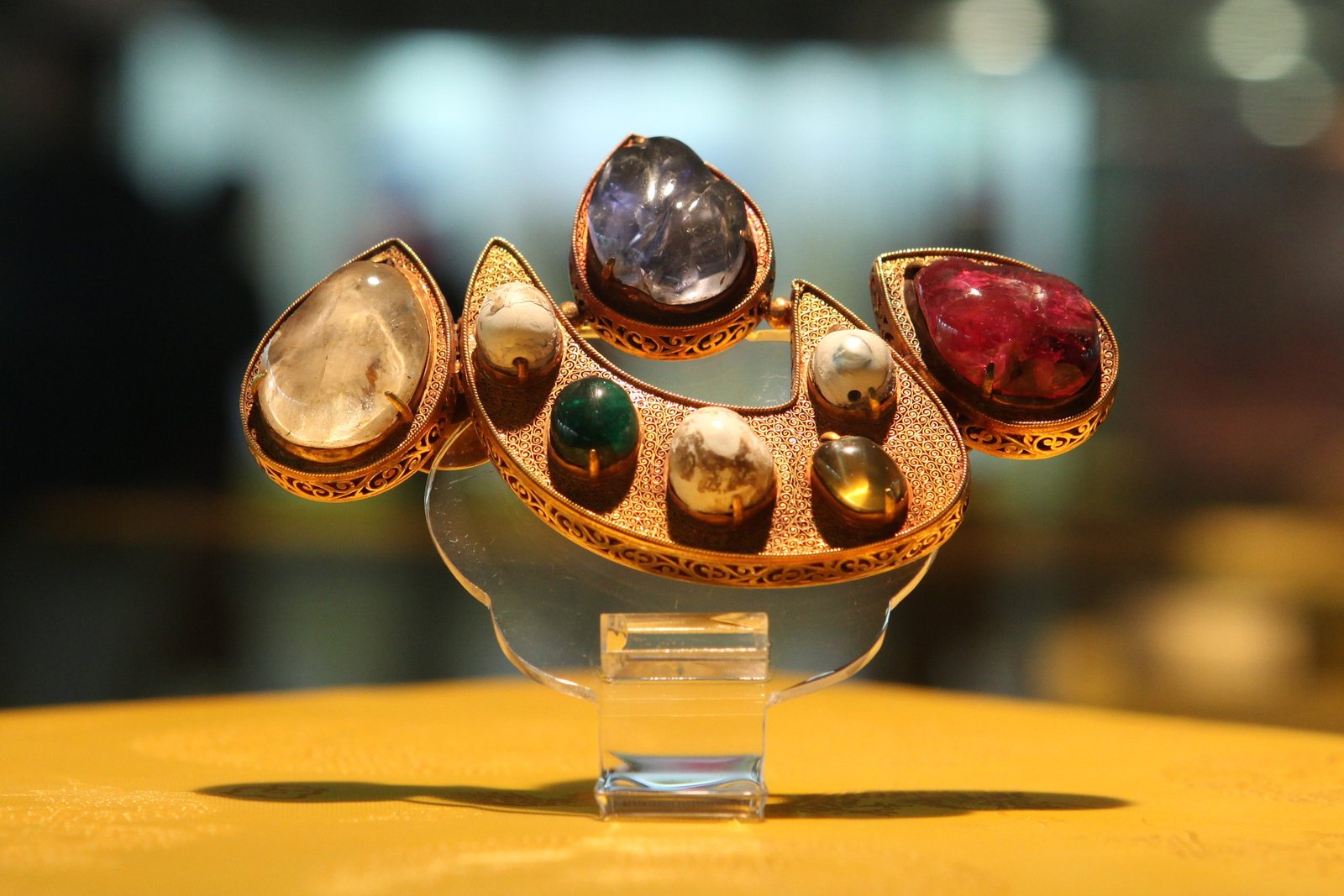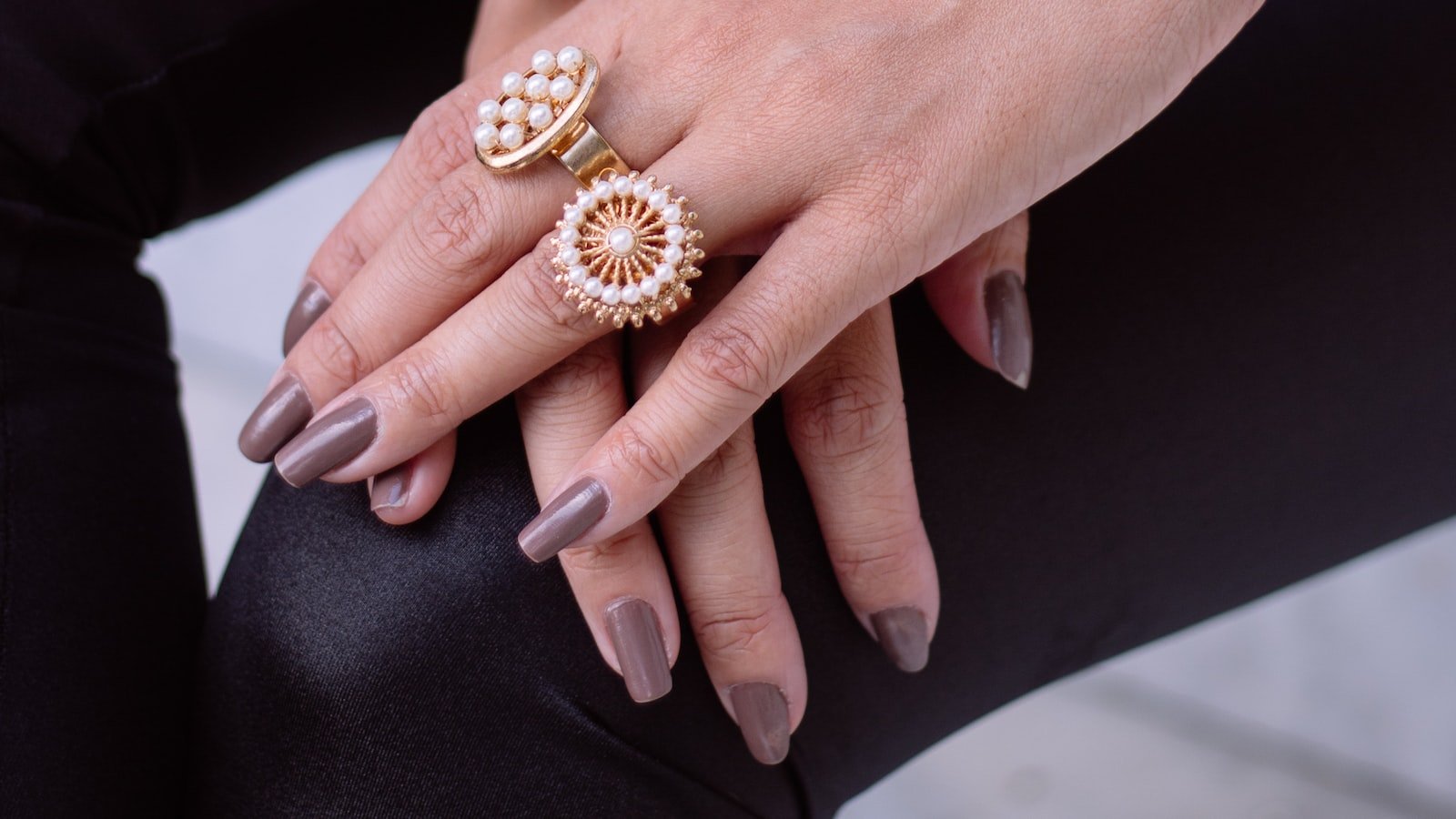Shimmering with elegance, jewelry has always been a symbol of beauty, a way to express our unique style, and an art form that transcends time. From dazzling diamond rings that capture the light, to delicate gold necklaces that accentuate our collarbones, these exquisite adornments have the power to transform us into walking works of art. However, for some individuals with skin sensitivity, the allure of jewelry can often be overshadowed by discomfort and irritation. The delicate dance between personal style and protecting our skin becomes a tricky challenge. Fortunately, in this article, we will explore the world of jewelry and its intricate relationship with skin sensitivity, providing you with invaluable tips and insights on how to choose pieces that won’t irritate your skin. So, let us embark on this exquisite journey, where beauty meets sensitivity, and discover the secrets to adorning ourselves with exquisite jewelry that is as gentle as a caress on the skin.
Understanding the Link between Jewelry and Skin Sensitivity
Unraveling the Intricate Bond Between Jewelry and Skin Sensitivity
When it comes to adorning ourselves with beautiful trinkets, we often overlook the intricate relationship between jewelry and our skin’s sensitivity. Our skin, as unique as a fingerprint, trusts only the finest of materials. Understanding this link is crucial, as it allows us to choose the perfect pieces that not only enhance our beauty but also nourish our delicate skin.
The Hidden Culprits:
Many of us have experienced the discomfort caused by wearing certain jewelry, without knowing the root cause. Here are a few common culprits that can trigger skin sensitivity:
- Nickel: Often present in low-quality metals, nickel is a notorious allergen that can cause redness, itching, and rashes.
- Copper: This vibrant metal can oxidize when exposed to moisture, leading to skin discoloration and irritation for those sensitive to it.
- Costume Jewelry: These fashionable pieces may contain various irritating additives, such as lead, cadmium, or zinc, which can irritate the skin after continuous wear.
Embrace Skin-Friendly Options:
Fortunately, there is hope for those with sensitive skin. Consider these tips to embrace skin-friendly jewelry:
- Choose Hypoallergenic Metals: Opt for high-quality materials like surgical-grade stainless steel, platinum, or titanium, which are less likely to trigger allergic reactions.
- Look for Nickel-Free Certifications: Search for jewelry that proudly displays its nickel-free certification, ensuring that the piece is safe for sensitive skin.
- Explore Alternatives: Organic materials like wood, bone, and certain types of clay can be excellent options for those seeking eco-friendly and skin-friendly jewelry alternatives.
Caring for Your Skin and Sparkles:
While choosing jewelry best suited for your skin sensitivity is essential, maintaining its luster is equally important. Follow these tips to ensure both your skin and jewelry shine:
- Keep it Clean: Regularly clean your jewelry to remove dirt, oils, and any allergens that might have accumulated on its surface.
- Avoid Moisture and Harsh Chemicals: Take off your jewelry when swimming, cleaning, or using chemical products to prevent damage and potential skin irritation.
- Rotate and Rest: Give your skin a break by alternating your jewelry and allowing your skin time to breathe and recover from potential irritations.

Choosing Hypoallergenic Materials for Sensitive Skin
Are you tired of dealing with skin irritations and allergic reactions? Choosing the right materials for your sensitive skin can make a world of difference in your comfort and well-being. Here are some tips to help you select hypoallergenic materials that will keep your skin happy and healthy.
1. Natural Fibers: When it comes to sensitive skin, natural is often the way to go. Opt for fabrics like cotton, bamboo, or silk, as they are gentle on the skin and less likely to cause irritation. These materials also allow your skin to breathe, reducing the risk of trapped sweat and bacteria, which can lead to skin problems.
2. Avoid Harsh Chemicals: Stay away from materials treated with harsh chemicals, such as formaldehyde, bleach, and dyes. These substances can be abrasive and irritating to sensitive skin. Look for organic or untreated fabrics that have gone through minimal processing to reduce the risk of skin reactions.
3. Layer Wisely: Layering can be a great way to protect your sensitive skin from irritants. Choose breathable base layers made from hypoallergenic materials like organic cotton or bamboo, and avoid synthetic materials as they are more likely to cause discomfort. Additionally, cover exposed skin with clothing to provide an extra barrier between your skin and potential allergens.
Remember, everyone’s skin is unique, so it’s essential to test new materials and fabrics before diving headfirst into a new wardrobe. Pay close attention to your body’s reactions and make adjustments accordingly. By considering these tips and being mindful of the materials you choose, you can pave the way towards a blissfully irritation-free experience for your sensitive skin!

Exploring Skin-Safe Options: Guidance for Allergic Reactions
Living with skin allergies can be challenging, but with proper care and knowing what to avoid, you can still enjoy a comfortable and healthy lifestyle. If you’re prone to allergic reactions, it’s crucial to be mindful of the products you use on your skin. Here’s a guide to help you navigate through skin-safe options.
1. Ingredients to Avoid:
If you have sensitive skin, it’s important to steer clear of certain ingredients that commonly trigger allergies. These include:
- Parabens
- Fragrances and perfumes
- Artificial dyes and colorants
- Harsh preservatives, such as formaldehyde
2. Gentle and Natural Alternatives:
Finding suitable alternatives to conventional skincare products is essential for managing allergic reactions. Look for gentle and natural options that prioritize simplicity and nourishment. Opt for:
- Hypoallergenic moisturizers and cleansers
- Products free from synthetic fragrances
- Organic and plant-based ingredients
- Skin-soothing and anti-inflammatory components like aloe vera or chamomile
3. Patch Testing:
Before incorporating any new product into your skincare routine, always perform a patch test. Apply a small amount of the product behind your ear or on your inner forearm and wait for 24-48 hours. If any irritation occurs, it’s best to avoid using that product.
4. Seek Medical Advice:
If you frequently experience severe allergic reactions or are unsure about which skincare products will suit your skin type, consult a dermatologist. They can provide personalized recommendations based on your specific needs and help you develop a safe skincare routine.
Remember, taking care of your skin requires patience and understanding. By opting for skin-safe options, you can minimize the risk of allergic reactions and keep your skin healthy, happy, and irritation-free.

Jewelry Care Tips to Prevent Skin Irritation
When it comes to wearing jewelry, we all want to shine and sparkle. However, it’s important to prioritize our skin’s health while indulging in our favorite accessories. Skin irritation caused by jewelry can be quite bothersome, but fear not! We have some valuable tips to help you prevent such irritation and keep your skin glowing.
1. Choose quality materials: Opt for jewelry made with hypoallergenic materials such as sterling silver, 18-karat gold, or surgical grade stainless steel. These materials are less likely to cause irritation compared to nickel or brass which are commonly found in cheaper jewelry.
2. Clean your jewelry regularly: Oftentimes, accumulated dirt, sweat, or oils on your jewelry can contribute to skin irritation. To avoid this, make it a habit to clean your jewelry regularly. Gently wipe your pieces with a soft, lint-free cloth after each use and clean them with mild soap and lukewarm water every few weeks. Remember to dry them thoroughly before storing.
3. Take breaks: While we love accessorizing, it’s essential to give our skin a breather. Avoid wearing jewelry for extended periods, especially during physical activities or when you’re about to sleep. This will allow your skin to breathe and reduce the chances of irritation.
4. Avoid contact with irritants: Certain products like perfumes, lotions, or cleaning chemicals can react with your jewelry and cause skin irritation. To prevent this, apply such products before putting on your jewelry and allow them to fully dry. Furthermore, try to remove your jewelry before using household chemicals or engaging in any water-related activities.
These easy-to-follow jewelry care tips will help you enjoy your favorite pieces without worrying about irritating your skin. Remember, prioritizing your skin’s health is as essential as looking stylish, so follow these guidelines and let your true radiance shine through your jewelry!

Finding Comfort and Style: Recommended Jewelry for Sensitive Skin
If you have sensitive skin, finding the perfect jewelry that not only looks stylish but also feels comfortable can be a challenging task. Fear not, for we have curated a list of jewelry options that are gentle on sensitive skin, so you can accessorize without worrying about irritations or rashes.
Hypoallergenic Metals and Materials:
One key aspect for individuals with sensitive skin is to opt for hypoallergenic materials. These are gentle on the skin, reducing the risk of allergic reactions. Some recommended options include:
- Titanium: Known for its hypoallergenic properties, titanium is a lightweight and corrosion-resistant metal that is perfect for sensitive skin. It is also incredibly durable, making it an excellent choice for everyday wear.
- Surgical Stainless Steel: Another hypoallergenic choice, surgical stainless steel is affordable, strong, and resistant to tarnish. It is a popular material for earrings, necklaces, and bracelets.
- Sterling Silver: Often a safe option for sensitive skin, sterling silver contains a small amount of copper that can cause allergic reactions in some individuals. Ensure that the jewelry is labeled as hypoallergenic sterling silver for extra assurance.
Coating and Plating:
For those who prefer gold and other non-hypoallergenic metals, a great alternative is to opt for jewelry with a hypoallergenic coating or plating. This creates a barrier between the metal and the skin, preventing direct contact. Some popular options include:
- Rhodium Plating: Rhodium is a precious metal that is hypoallergenic and highly resistant to scratches. Jewelry with rhodium plating provides an elegant and hypoallergenic solution for those with sensitive skin.
- Gold Vermeil: Gold vermeil involves a thick layer of gold plated over sterling silver, making it a suitable choice for sensitive skin. Ensure that the gold plating is thick enough to minimize direct contact with the underlying metal.
- Enamel Coating: Enamel is a type of glass coating that can be applied to jewelry, providing a protective layer between the metal and the skin. It comes in various colors and adds an interesting touch to your accessories.
Remember, everyone’s skin reacts differently, so it’s essential to test a new piece of jewelry on a small patch of skin before wearing it for an extended period. By considering hypoallergenic metals, materials, coatings, and plating, you can confidently express your style while keeping your sensitive skin happy and irritation-free!
In Summary
As we reach the end of our journey exploring the delicate balance between jewelry and skin sensitivity, one thing is abundantly clear - finding the perfect pieces that won’t irritate can be a herculean task. We’ve delved into the intricate world of metal allergies, uncovered the secrets behind hypoallergenic materials, and learned the art of listening to our skin’s whispers.
In this quest for jewelry that embraces both style and comfort, we have discovered that there is no one-size-fits-all solution. Each one of us possesses a unique skin chemistry, predisposing us to various sensitivities. Yet, armed with knowledge and a touch of creativity, we can confidently navigate the shimmering sea of adornments.
Remember, dear reader, that the key lies not only in the materials, but also in the mindfulness of our choices. Seek out reputable jewelers who prioritize the well-being of their customers, meticulously selecting components that are not only aesthetically pleasing but also gentle on the skin. Consider opting for jewelry crafted from skin-friendly materials like surgical-grade stainless steel, titanium, or nickel-free gold, as they bestow a touch of elegance without the itch.
Dare to step outside the conventional boundaries of jewelry design. Explore the world of alternative materials like wood, silicone, or fabric, which not only bring forth an artistic flair but also tenderly caress your skin. Embrace the beauty of simplicity, as minimalist jewelry, with its sleek lines and unassuming charm, can often be the soothing balm for sensitive souls.
As our journey comes to a close, let us remember that sensitivity is not a flaw, but rather a unique trait that deserves to be celebrated. By carefully selecting jewelry that weaves harmony between our personal style and skin, we can adorn ourselves with confidence and grace. So, dear reader, may your choices be guided by your intuition, your skin’s desires, and above all, your undeniable love for the exquisite world of jewelry.




